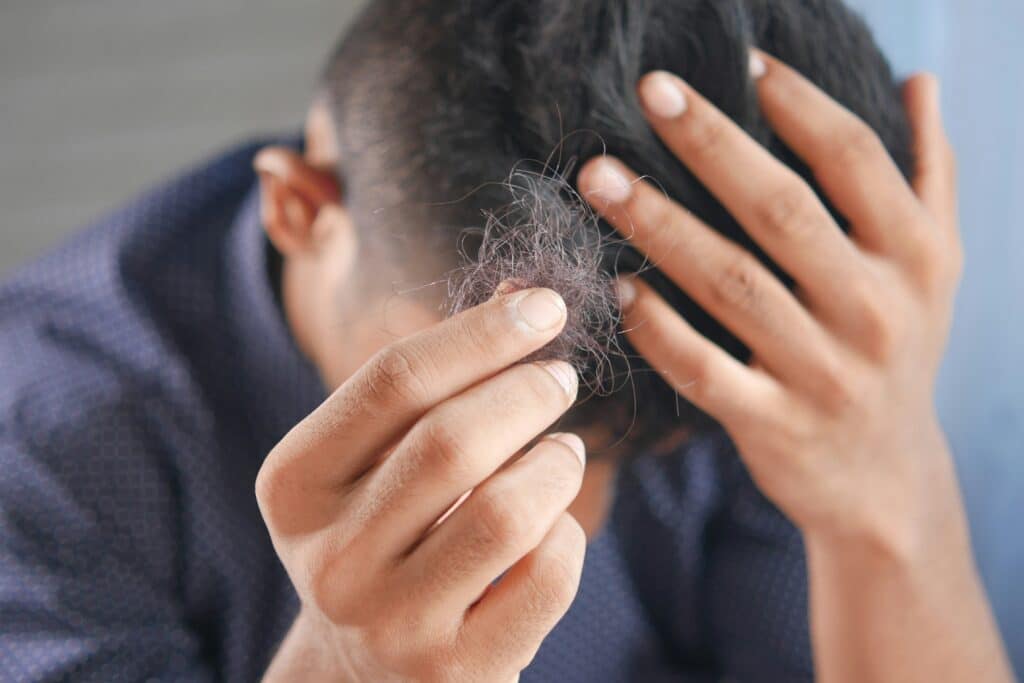Ozempic and Hair Loss: Causes, Risks, and Prevention
Ozempic and Hair Loss: Causes, Risks, and Prevention
- Jason K
Ozempic (semaglutide) has become a popular medication for managing Type 2 diabetes and aiding in weight loss. However, some patients have raised concerns about hair loss while using Ozempic. While not a common side effect, hair thinning can occur under certain conditions. This article explores the connection between Ozempic and hair loss, why it might happen, and effective strategies to prevent or minimize its occurrence.
Understanding Ozempic and Its Effects
Ozempic is a GLP-1 receptor agonist that works by mimicking a natural hormone in the body. It helps lower blood sugar levels, promotes weight loss, and reduces appetite. While it is highly effective for these purposes, medications like Ozempic can sometimes cause unexpected side effects. Hair loss is not listed as a primary side effect of Ozempic, but it may occur indirectly due to several factors.
How Can Ozempic Cause Hair Loss?
1. Weight Loss and Nutritional Deficiencies
Ozempic often leads to significant weight loss, which can sometimes result in rapid or drastic changes in the body. Rapid weight loss can lead to temporary hair loss, known as telogen effluvium. This condition occurs when a sudden physical or emotional stressor pushes hair follicles into the resting phase, causing excessive shedding.
- Nutrient Deficiency Risk: With significant calorie reduction or an imbalanced diet, the body may lack essential nutrients like protein, biotin, zinc, and iron, all critical for healthy hair growth.
- Drastic Weight Loss: Losing weight too quickly can signal the body to conserve energy for essential functions, redirecting nutrients away from non-essential systems like hair growth.
2. Hormonal Changes
Rapid weight loss can lead to changes in hormones such as estrogen or thyroid hormones, which are closely linked to hair health. Fluctuations in these hormones can disrupt the hair growth cycle, causing thinning or shedding.
3. Stress from Adjusting to New Medication
Some patients experience mild stress or anxiety when starting a new medication like Ozempic, which may indirectly contribute to hair shedding. Stress-induced hair loss can exacerbate conditions like telogen effluvium.
4. Underlying Health Conditions
In some cases, hair loss while using Ozempic may be linked to pre-existing health conditions, such as diabetes itself, thyroid disorders, or autoimmune diseases like alopecia areata. These conditions can become more noticeable during periods of weight loss or medication changes.
Is Hair Loss a Common Side Effect of Ozempic?
Hair loss is not a commonly reported side effect of Ozempic. In clinical trials and post-marketing studies, it is not listed among the primary adverse reactions. However, individual experiences vary, and some patients have reported hair thinning, often related to the indirect factors mentioned above.
While uncommon, it is important to discuss any noticeable hair loss with your healthcare provider to rule out other causes or contributing factors.
How to Prevent Hair Loss While Using Ozempic
If you are using Ozempic and concerned about hair loss, there are several steps you can take to maintain healthy hair growth:
1. Ensure a Balanced Diet
Proper nutrition is essential for preventing hair loss, especially during weight loss. Focus on a diet rich in:
- Protein: Found in eggs, lean meats, fish, beans, and dairy, protein supports the structure of hair strands.
- Iron and Zinc: Leafy greens, nuts, seeds, and fortified cereals are great sources of these nutrients.
- Biotin: Found in eggs, nuts, and sweet potatoes, biotin supports healthy hair and nails.
- Omega-3 Fatty Acids: Salmon, walnuts, and flaxseeds are rich in omega-3s, which help maintain a healthy scalp.
If calorie intake is significantly reduced, consider discussing a multivitamin or hair supplement with your healthcare provider.
2. Lose Weight Gradually
Rapid weight loss is a major contributor to hair thinning. To prevent this, aim for a slow and steady rate of weight loss, typically 1-2 pounds per week. Gradual weight loss gives your body time to adjust without triggering stress-related shedding.
3. Manage Stress Levels
Stress management techniques can help prevent telogen effluvium and promote overall health. Some effective methods include:
- Meditation and Yoga: These practices can help reduce anxiety and improve emotional well-being.
- Regular Exercise: Physical activity promotes circulation and releases endorphins, which can counteract stress.
- Adequate Sleep: Aim for 7-9 hours of quality sleep per night to support healthy hair growth cycles.
4. Use Gentle Hair Care Practices
Protect your hair from damage by:
- Avoiding excessive heat styling or chemical treatments.
- Using a wide-tooth comb to minimize breakage.
- Choosing sulfate-free shampoos and conditioners to maintain moisture and reduce scalp irritation.
5. Monitor and Treat Underlying Conditions
If you have diabetes, thyroid disorders, or other conditions affecting hair health, work closely with your healthcare provider to manage them. Well-controlled blood sugar levels and overall health are crucial for preventing hair loss.
When to Seek Medical Advice
If hair loss persists or worsens while using Ozempic, consult your healthcare provider. They can:
- Evaluate whether Ozempic is contributing to the issue.
- Rule out other causes such as nutrient deficiencies, hormonal imbalances, or autoimmune conditions.
- Recommend treatments such as topical solutions (e.g., minoxidil) or oral medications if necessary.
Key Takeaways
Hair loss while using Ozempic is not common but can occur due to indirect factors like rapid weight loss, nutritional deficiencies, or stress. Fortunately, most cases are temporary and reversible with proper care. To prevent hair loss:
- Prioritize a nutrient-rich diet.
- Aim for gradual weight loss.
- Practice stress management and gentle hair care.
If you experience significant or persistent hair thinning, speak with your healthcare provider for guidance. By addressing the root causes and taking preventive measures, you can continue benefiting from Ozempic while maintaining healthy hair.
Reference:
https://www.healthline.com/health-news/ozempic-causing-hair-loss


